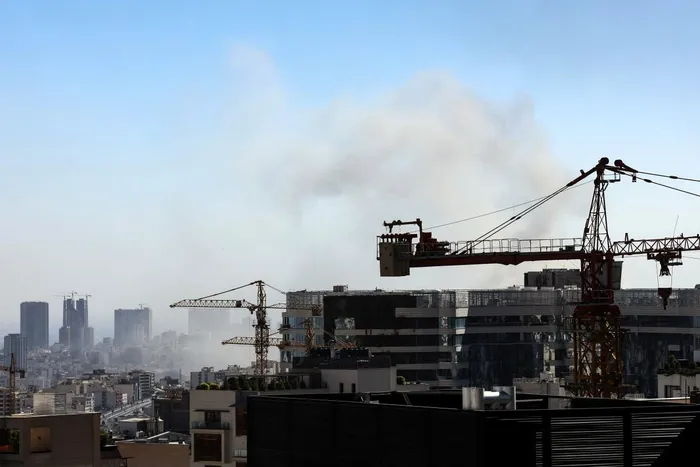Escalating tensions threaten global oil supplies amidst US strikes on Iran
GOEPOLITICS

There has been major concern about international oil prices and supply following news breaking on Sunday that the United States had attacked three major nuclear sites in Iran
Image: AFP
Concerns about international oil prices and global supply chains surged on Sunday following the United States' military strike on three major nuclear sites in Iran.
This move, which has escalated ongoing tensions in the Middle East, comes less than two weeks after Iran and Israel reignited hostilities. Analysts on Sunday warned that the fallout from these attacks could have dire implications for the global economy.
In a recent televised address, US President Donald Trump described the airstrikes as a "spectacular military success," proclaiming that Iran’s key nuclear enrichment facilities—located in Fordow, Natanz, and Isfahan—have been "completely and totally obliterated."
Of biggest concern now is that Iran is mulling the closure of the Strait of Hormuz, a narrow waterway at the mouth of the Persian Gulf controlled by Iran, which is now in the centre of global supply chain as it handles more than 26% of the world’s oil trade.
According to reports, there are currently close to 50 large oil tankers scrambling to leave the Strait of Hormuz.
Nigel Green, CEO of financial advisory giant deVere Group, said a conflict that had remained largely contained was now threatening to trigger broad-based repricing across the global economy.
Green added that Brent crude had already been climbing steadily in recent weeks, but the decision to target Iranian nuclear facilities has dramatically increased fears of retaliation and disruption.
“Any closure or threat to the Strait of Hormuz, through which nearly 20% of the world’s oil flows, would send prices sharply higher.”
Brent crude oil futures rose 0.7% on Sunday above $77 per barrel, a third consecutive weekly gain as geopolitical tensions in the Middle East escalated.
Green said that some analysts now warn that crude could spike toward $130 per barrel, depending on Iran’s next move.
“Such a price shock would filter through to global inflation, which remains elevated and/or sticky in many regions. Market participants had been pricing in rate cuts from central banks, including the Federal Reserve, in the second half of the year.”
Momentum Investments chief economist, Sanisha Packirisamy, said although South Africa mostly imports its oil from Angola, Nigeria and Saudi Arabia (with very little to no direct reliance on Iran), a blockage of the Strait of Hormuz could negatively affect the international price of oil given that between 25% and 30% of global oil supply passes through this Strait.
“As such, higher international oil prices, in the event of a shutdown of the Strait, could result in higher transport prices for South Africans. Moreover, a shutdown of the Strait would trigger a major risk-off event in markets and it is likely that the rand would sell off in that scenario, adding to domestic inflationary pressures,” she said.
“South Africa’s oil reserves would likely be insufficient to cover a significant and prolonged supply disruption in the Middle East. In an extreme case, South Africa could ration fuel and prioritise essential sectors to stretch reserves, while securing emergency imports and pivoting to new suppliers.”
Professor Irrshad Kaseeram from the University of Zululand's economics department said the blockade of the Strait of Hormuz could have significant global economic repercussions; high production costs and increasing inflation, forcing central banks to delay interest rate reductions.
“Thus, any disruptions extending to transit/supply routes involving the Straits of Hormuz, where 20% of global oil supply passes through, are significant,” he said.
“Although Saudi Arabia has a stockpile of oil reserves and sufficient spare capacity to ensure continued supply in the short term, a prolonged war or a continued blockade of the Straits of Hormuz is very likely to push oil prices beyond $100 a barrel.”
North-West University Business School economist, Professor Raymond Parsons, said that this injected another big element of uncertainty into the global economic outlook.
“Financial and commodity markets such as oil will inevitably be on edge and become more volatile as they assess whether a worst-case scenario will unfold from the latest US action. Investors will therefore be bracing themselves this week to see an initial spike in the oil price and a rush to safe havens,” Parsons said.
“This latest geopolitical development comes at a vulnerable moment for the world economy, as recent IMF and other forecasts have already been lowered for the world growth outlook.”
BUSINESS REPORT